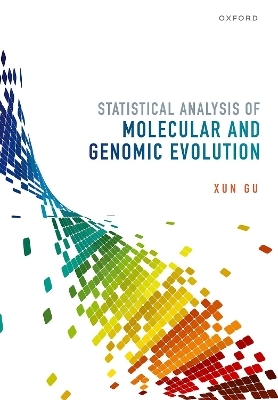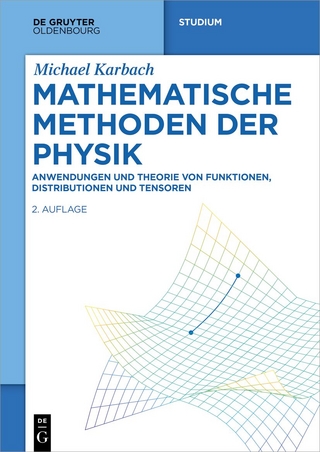
Statistical Analysis of Molecular and Genomic Evolution
Seiten
2024
Oxford University Press (Verlag)
978-0-19-881651-5 (ISBN)
Oxford University Press (Verlag)
978-0-19-881651-5 (ISBN)
Proposes a new framework of knowledge for the field of evolutionary genomics. Written at the simplest mathematical level whilst offering a clear explanation of complex statistical models and principles.
The field of molecular and genomic evolution has been catalysed by the ever increasing availability of high throughput data such as transcriptome evolution, genotype-phenotype evolution, and genetic robustness. However, there is also an urgent requirement for the emergence of new paradigms (universally accepted scientific frameworks) supported by conceptual breakthroughs, since there is now widespread agreement that genome evolution research should be far more than a static pattern characterized by some well-known arguments and yet more big data for testing or extension. Furthermore, while the internet has made a vast body of literature and data widely accessible, researchers are increasingly facing significant challenges in how to select from this huge reserve appropriately and systematically.
Statistical Analysis of Molecular and Genomic Evolution sets out to provide a solution to the most frequently asked question by next-generation young researchers in the area of evolutionary genomics: What is the knowledge that is essential for moving the research forward and where can it be found? Although the book incorporates the latest research foci, it is written at the simplest mathematical level whilst sophisticated enough to provide a deep understanding of current principles and methods. Technical issues are described only briefly, mathematical derivations are kept to a minimum, and it is structured and presented in a way that encourages its use as a graduate textbook. Mindful of the steep learning curve that some biologist readers may face, online appendices review basic mathematical and statistical concepts used in the book, and provide further examples and practical exercises.
This is an advanced textbook suitable for graduate level students as well as professional researchers (both empiricists and theoreticians) in the fields of molecular phylogenetics, evolutionary biology, bioinformatics, mathematics, and statistics.
The field of molecular and genomic evolution has been catalysed by the ever increasing availability of high throughput data such as transcriptome evolution, genotype-phenotype evolution, and genetic robustness. However, there is also an urgent requirement for the emergence of new paradigms (universally accepted scientific frameworks) supported by conceptual breakthroughs, since there is now widespread agreement that genome evolution research should be far more than a static pattern characterized by some well-known arguments and yet more big data for testing or extension. Furthermore, while the internet has made a vast body of literature and data widely accessible, researchers are increasingly facing significant challenges in how to select from this huge reserve appropriately and systematically.
Statistical Analysis of Molecular and Genomic Evolution sets out to provide a solution to the most frequently asked question by next-generation young researchers in the area of evolutionary genomics: What is the knowledge that is essential for moving the research forward and where can it be found? Although the book incorporates the latest research foci, it is written at the simplest mathematical level whilst sophisticated enough to provide a deep understanding of current principles and methods. Technical issues are described only briefly, mathematical derivations are kept to a minimum, and it is structured and presented in a way that encourages its use as a graduate textbook. Mindful of the steep learning curve that some biologist readers may face, online appendices review basic mathematical and statistical concepts used in the book, and provide further examples and practical exercises.
This is an advanced textbook suitable for graduate level students as well as professional researchers (both empiricists and theoreticians) in the fields of molecular phylogenetics, evolutionary biology, bioinformatics, mathematics, and statistics.
Xun Gu is Professor at the Department of Genetics, Development and Cell Biology, Program of Bioinformatics and Computational Biology, Iowa State University, USA . He was elected a Fellow of the AAAS in 2016.
Preface
1: Evolutionary Distance Analysis in Molecular Evolution
2: Phylogeny-Dependent Analysis
3: Neutrality Testing When Some Amino Acid Sites Are Strongly Constrained
4: Functional Divergence after Gene Duplication: DIVERGE Analysis
5: Rank of Genotype-Phenotype Map and Effective Gene Pleiotropy Estimation
6: Evolution of Genetic Robustness after Gene Duplication
7: Statistical Models of Transcriptome Evolution
8: Ancestral Transcriptome Inference
9: Strength of Expression Conservation in Transcriptome Evolution
| Erscheinungsdatum | 27.09.2024 |
|---|---|
| Verlagsort | Oxford |
| Sprache | englisch |
| Maße | 176 x 253 mm |
| Gewicht | 502 g |
| Themenwelt | Mathematik / Informatik ► Mathematik ► Angewandte Mathematik |
| Naturwissenschaften ► Biologie ► Evolution | |
| Naturwissenschaften ► Biologie ► Genetik / Molekularbiologie | |
| ISBN-10 | 0-19-881651-0 / 0198816510 |
| ISBN-13 | 978-0-19-881651-5 / 9780198816515 |
| Zustand | Neuware |
| Haben Sie eine Frage zum Produkt? |
Mehr entdecken
aus dem Bereich
aus dem Bereich
Anwendungen und Theorie von Funktionen, Distributionen und Tensoren
Buch | Softcover (2023)
De Gruyter Oldenbourg (Verlag)
69,95 €
Buch | Hardcover (2024)
Hanser (Verlag)
39,99 €


